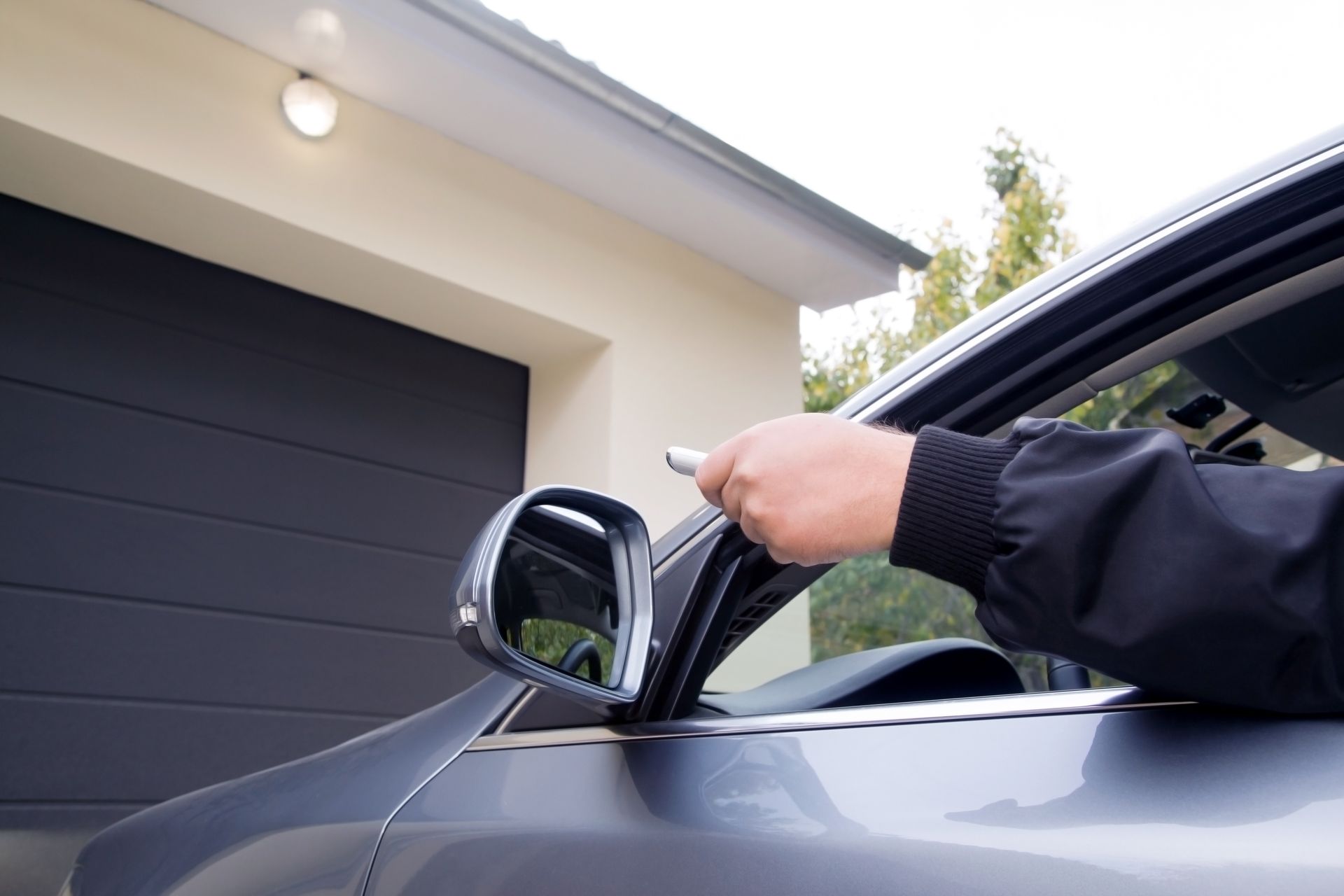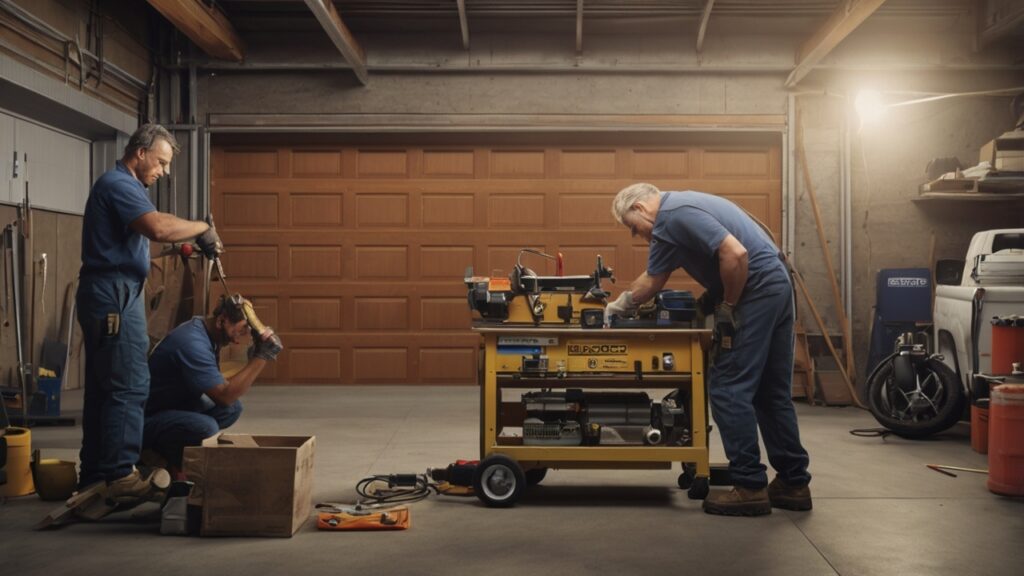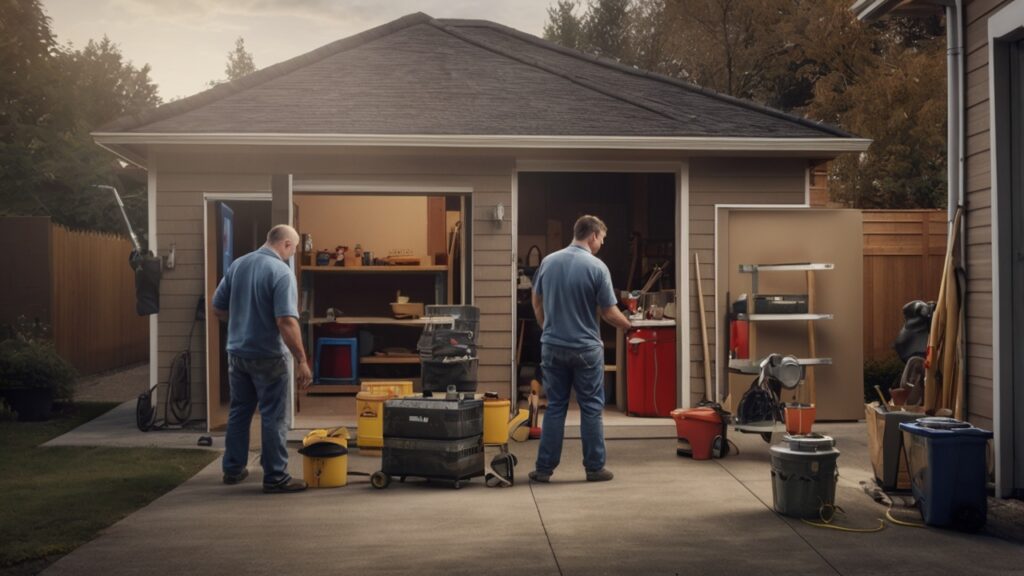If you’ve landed here, chances are you’re standing in front of your garage pressing the button over and over, but nothing happens. Frustrating, right? A garage door opener not working is one of those problems that feels big at first, but sometimes the solution is surprisingly simple. I’ve been there myself, standing in the rain clicking the remote like a fool, only to find out later it was just the dead batteries.
Don’t panic—most issues with a garage door opener can be handled by checking a few key things. In this troubleshooting guide, we’ll go step by step, from the easy fixes anyone can do at home to the bigger issues that really should be handled by a professional. If you troubleshoot a garage door opener the right way, you’ll save yourself time, stress, and maybe even money.
Common Reasons Why a Garage Door Opener Stops Working (Won’t Open Or Close)

From my experience (and from talking with technicians who repair these things every day), the majority of cases fall into a few simple categories:
- Remote control problems – Usually dead batteries or a worn-out button pad.
- Blocked safety sensors – Dirt, spider webs, or misalignment can fool the system into thinking something’s in the way.
- Power issues – Loose plugs, tripped circuit breakers, or even damaged wiring.
- Manual release engaged – That red emergency cord might’ve been pulled accidentally.
- Mechanical wear and tear – Broken springs, snapped cables, or worn gears.
Each of these issues can cause your garage door opener not working properly, and figuring out which one applies to your situation is the first step.
DIY Troubleshooting Checklist (Step-by-Step)
Here’s the part you probably came for: the step-by-step guide. Grab a flashlight and let’s walk through it.
1. Check the Power Source
It sounds obvious, but trust me, I’ve seen homeowners call in a repair company only to find the opener wasn’t even plugged in. Make sure the power cord is firmly in the outlet. Then check your breaker box—sometimes the breaker trips after a power surge.
2. Replace the Remote Batteries
If your garage door opener is not working from the remote but works with the wall button, the problem is almost always batteries. Pop in a fresh set, usually AA or coin-style CR2032 depending on your model. Keep spares handy; I’ve learned this the hard way.
3. Clean and Align the Safety Sensors
At the base of your garage door, you’ll see two small sensors facing each other. If these are dirty or misaligned, the opener will refuse to close the door. Use a soft cloth to wipe them down and make sure the lights are steady (usually green or amber). A blinking light often means misalignment.
4. Check for the Manual Release
That red cord hanging from your opener track? If it’s pulled, the opener disconnects from the door. Pull it again (towards the opener) to re-engage. This is a common “oops” moment after someone’s been moving things around in the garage.
5. Examine the Springs and Cables
This part is tricky. Look up at the torsion springs (above the door) or the extension springs (on the sides). If one is broken, you’ll often see a clear gap in the coil. Snapped cables may also be dangling loose. Do not attempt to replace these yourself—springs are under extreme tension and can be very dangerous.
When to Call a Professional
Some repairs are simply not safe for DIY. A trusted garage door repair expert is the right call if you notice:
- Broken or stretched springs.
- Snapped cables.
- Grinding noises inside the opener motor.
- The door opening unevenly or jerking halfway.
- Burnt smell or visible smoke from the opener.
As one specialist from Durham, NC, told me: “People underestimate how much force these doors carry. A spring can snap with enough power to cause serious injury. That’s why some jobs should never be attempted without proper training and tools.”
If you’re in Durham or nearby, you can check our detailed guide: 5 Professional Garage Door Services Recommendation in Durham, NC. Having a reliable professional can mean the difference between a quick fix and a costly accident.
A Real-Life Case Example
A neighbor of mine once thought his opener was dead because it stopped responding. He replaced the remote, cleaned the sensors, even checked the motor casing. Nothing worked. Finally, he called a technician. Turns out, a squirrel had chewed the wiring near the outlet—something he never thought to check. The repair cost was reasonable, and he admitted he should’ve called earlier instead of spending two days in frustration.
Stories like this remind us that while DIY fixes are great, sometimes an expert eye spots the problem in five minutes.
Preventative Tips to Avoid Future Trouble
- Keep a spare set of remote batteries in the house.
- Wipe down the safety sensors every month.
- Listen for new grinding or squealing sounds—early warning signs of wear.
- Don’t overload your garage outlet with other heavy appliances.
- Schedule a professional inspection every 1–2 years.
Dealing with a garage door opener not working can ruin your day, but in many cases, the fix is simple: power, batteries, or sensors. However, if you run into broken springs, frayed cables, or anything that looks dangerous, don’t risk it. A professional, trusted repair service can solve the problem quickly and safely.
If you want a reliable recommendation, don’t forget to check our main guide here: 5 Professional Garage Door Services Recommendation in Durham, NC. You can also visit our homepage for more expert tips.
FAQs
1. Why won’t my garage door opener close even though it opens fine?
Usually, it’s a sensor issue. The opener thinks something is blocking the door. Clean and align the sensors, then test again.
2. How do I know if the opener motor is burnt out?
If the opener makes no noise at all, not even a hum, and the power source is fine, the motor might be dead. At this point, call a professional.
3. Is it safe to repair garage door springs myself?
No. Springs are tightly wound and extremely dangerous if mishandled. Always hire a professional for spring or cable replacement.
👉 If you found this troubleshooting guide useful, please share it with friends or neighbors using the share buttons below. It might save someone a huge headache.


